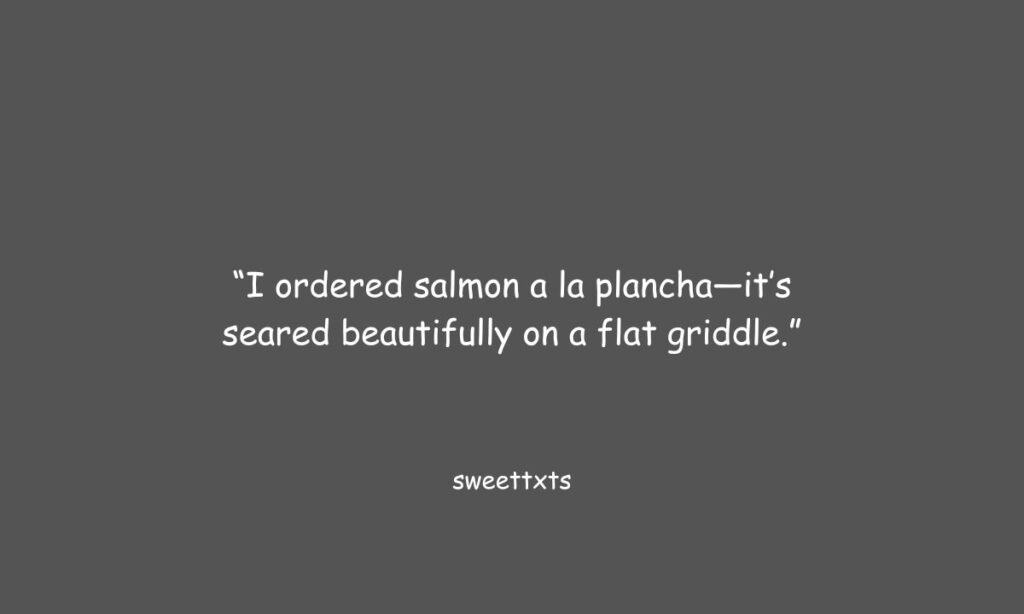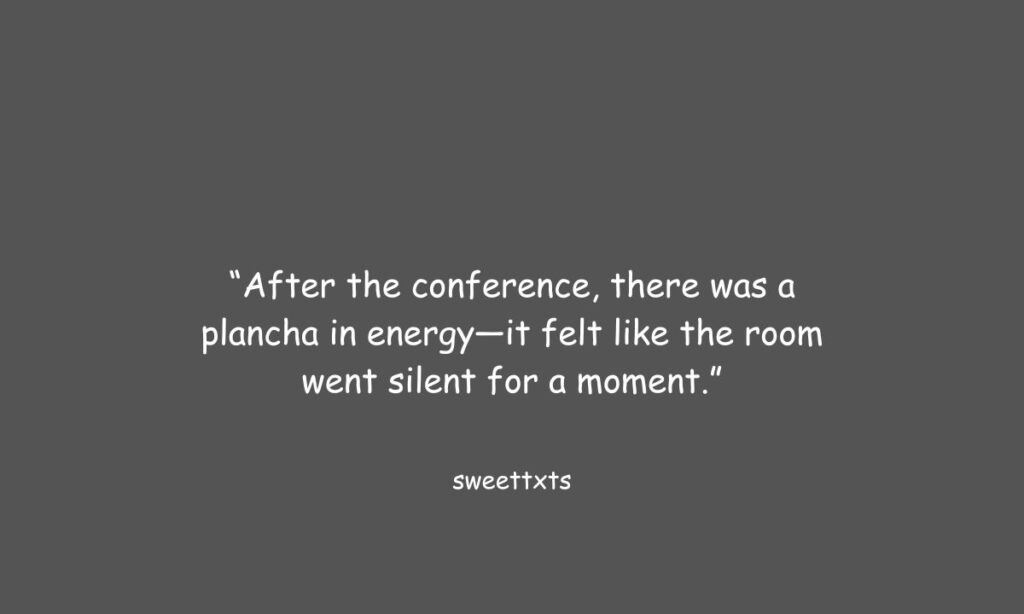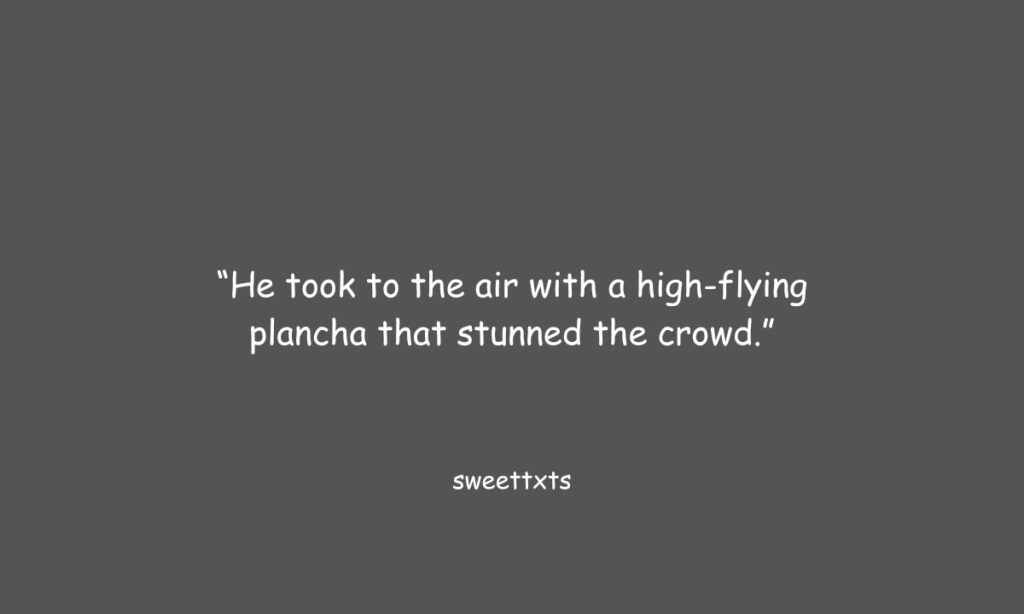Plancha means a hot flat surface often used for cooking food. In some places, chefs cook meat or vegetables on a plancha to make them taste better. The word plancha comes from the Spanish language and is used in many countries.
People also use a plancha in wrestling. A wrestler jumps and hits another person using a move called plancha. It looks strong and exciting. This word shows power, motion, or a big moment during a fight or show.
Sometimes, plancha can mean a pause or break in work or life. This is the hiatus meaning of plancha. It can be a short rest before doing something again. This makes the word useful in many ways.
What Does Plancha Mean?
The term “plancha” originates from the Spanish language, where it translates directly to “iron” or “griddle.” Its uses, however, extend far beyond that simple definition.
Key Definitions of “Plancha”:
- Culinary Use: In the kitchen, “a la plancha” refers to grilling or searing food on a metal plate or flat-top griddle. It’s a cooking technique celebrated for its high heat and flavorful results.
- Wrestling Term: In the world of professional wrestling, “plancha” describes a flying body attack launched from the ring to the outside, showcasing athleticism and risk.
- Figurative Use: In colloquial or symbolic terms, “plancha” can represent a direct action, impact, or even a break (hiatus) depending on cultural nuances.
- Slang/Regional Variants: In some Latin American countries, “plancha” may be used in slang to mean something literal (like a hot plate) or metaphorical (an intense moment or a pause in action).
Each of these interpretations ties into the broader theme of “hiatus”—a pause, impact, or interruption in the normal flow of events.
Plancha Meaning in Text*

When used in text, the meaning of “plancha” often varies based on context. It can either describe something literal (like a grilled dish) or symbolic (like an intense moment or sudden change of pace).
Examples:
- Literal (Culinary):
“I ordered salmon a la plancha—it’s seared beautifully on a flat griddle.” - Figurative (Metaphorical Pause):
“After the conference, there was a plancha in energy—it felt like the room went silent for a moment.” - Professional Wrestling:
“He took to the air with a high-flying plancha that stunned the crowd.” - Textual Interpretation:
Depending on how it’s placed, “plancha” in a text message or conversation can mean:- A planned pause (hiatus)
- A fiery moment
- A surprise break in routine
Understanding plancha meaning in text requires an appreciation for tone, medium, and cultural context.
Hiatus Meaning of Plancha Meaning
The hiatus meaning of “plancha” captures the symbolic moment when something stops briefly, dramatically, or intensely. Just as a sear on a grill halts the rawness of meat, or a wrestling leap freezes time, “plancha” can poetically signal a break in continuity.
Nuanced Meanings:
- Dramatic Pause: An interruption that commands attention.
- Cultural Hiatus: A temporary stop in routine, filled with emotion or energy.
- Energetic Disruption: A burst of effort or a spirited interlude.
- Symbolic Reset: A pivotal moment before change or transformation.
Using “plancha” to imply a hiatus is more abstract, often used in artistic or narrative settings to convey a sense of tension, delay, or purposeful silence.
11 Polite, Professional, and Casual Alternatives to the Word “Hiatus”

Depending on the audience and context, you might want to replace or vary the word “hiatus” to better fit the conversation. Below are 11 carefully chosen alternatives—each suited for different tones.
1. Intermission
Tone: Polite/Formal
Example:
“Let’s take a short intermission before we continue the session.”
Great for presentations or meetings with structured timing.
2. Pause
Tone: Casual/Universal
Example:
“We’re taking a quick pause—back in 10!”
Simple, clean, and perfect for day-to-day use.
3. Break
Tone: Casual/Friendly
Example:
“I’m on a break right now; let’s catch up later.”
Often used in workplace or personal settings.
4. Timeout
Tone: Casual/Sports/Playful
Example:
“Let’s call a timeout and regroup before we move forward.”
Works well in teams or when recalibrating a plan.
5. Recess
Tone: Semi-formal/Academic
Example:
“The committee is now in recess until the next round of deliberations.”
Appropriate in educational or governmental contexts.
6. Interval
Tone: Formal/Polished
Example:
“There will be a 15-minute interval before the next performance.”
Classy alternative, used in performances or events.
7. Respite
Tone: Poetic/Formal
Example:
“After weeks of chaos, she welcomed the brief respite.”
Ideal for emotional or reflective writing.
8. Suspension
Tone: Legal/Professional
Example:
“The project is under suspension until further notice.”
Used in corporate or legal notices.
9. Sabbatical
Tone: Professional/Academic
Example:
“He’s on sabbatical to work on personal research.”
Best used when referring to extended time off for growth or study.
10. Interlude
Tone: Artistic/Formal
Example:
“The storm was just an interlude between calm skies.”
Perfect for creative writing or storytelling.
11. Standstill
Tone: Serious/Professional
Example:
“Negotiations came to a standstill after the disagreement.”
Highlights tension or conflict-driven pauses.
When to Use Which Word?

| Context | Suggested Word |
|---|---|
| Business Meeting | Intermission, Pause |
| Friendly Conversation | Break, Timeout |
| Legal or Official | Suspension, Standstill |
| Academic or Career | Sabbatical, Recess |
| Creative Writing | Respite, Interlude |
Rather than relying solely on the term hiatus, you can elevate your language by selecting a word that suits the emotional and cultural context of your message.
How to Choose the Best Alternative
Choosing the most suitable word depends on a few simple criteria:
- Audience: Are you speaking to friends, colleagues, or clients?
- Setting: Is the environment casual, formal, or creative?
- Purpose: Are you expressing a literal pause or a symbolic/emotional one?
- Tone: Do you want your message to feel relaxed, professional, or poetic?
Once you assess these, you can enhance your expression by selecting a more vivid, appropriate alternative to the word “hiatus.”
Final Thoughts
Whether sizzling on a griddle, flying across a wrestling ring, or symbolizing a dramatic pause in life, “plancha” is a word rich in action and meaning. It serves as a bridge between literal and metaphorical language, encapsulating both intensity and intermission. It is not merely a term—it’s an expression of impact, pause, and presence.
By understanding the hiatus meaning of plancha, you can enhance your communication, making your words resonate more deeply across conversations, cultures, and contexts.

Daily blessings and uplifting messages by Drupmo for every morning, evening, and day of the week—bringing peace, hope, and inspiration to your soul.